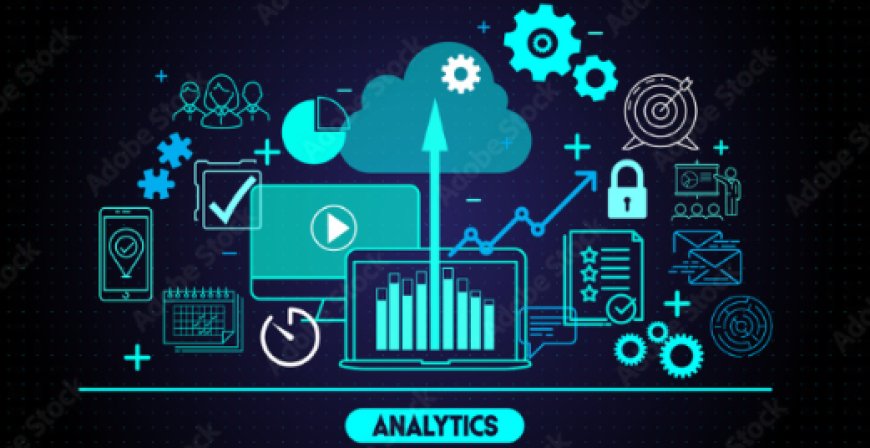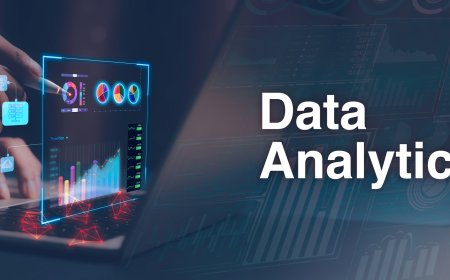The Impact of Analytics Professional Certification on Your Career
Discover the transformative impact of becoming a certified analytics professional. Boost your skills, gain recognition, and open doors to limitless opportunities in the data-driven world.

Nowadays, Analytics has become incredibly important in various industries. It is a key factor in determining the success of organizations. Regardless of the field they are in, businesses are realizing the significant impact HR analytics can have on decision-making, efficiency, and gaining a competitive advantage. With the abundance of data and advancements in technology, analytics has gone from being a specialized area to a crucial function. Industries like finance, healthcare, retail, and manufacturing utilise data analytics to optimize processes, personalize customer experiences, manage risks, and discover new growth opportunities.
The need for analytics professionals has seen a huge increase in various industries, highlighting the important role that data-driven insights play in modern business strategies. From 2024 onwards, job markets worldwide have observed a significant rise in job postings for positions like data scientists, data analysts, and machine learning engineers. This demand is not limited to specific sectors but extends across diverse industries including finance, healthcare, e-commerce, and technology.
Employers are now seeking professionals with a wide range of skills, including data visualization, statistical analysis, and machine learning expertise. The field of analytics has also witnessed the emergence of new roles such as AI specialists and data engineers, showcasing its dynamic evolution. Additionally, companies are making greater investments in analytics tools and technologies, indicating their commitment to utilizing data for strategic decision-making. At the same time, there has been a notable increase in enrollments for data science and analytics education programs, highlighting the growing importance individuals place on acquiring the necessary skills to meet the rising demand in the analytics job market.
Lack of formal recognition and validation of skills
-
Absence of Standardization: The lack of a standardized framework for recognising and validating skills in certain domains leads to ambiguity and inconsistency in how skills are assessed and acknowledged.
-
Informal Learning Challenges: Skills acquired through informal channels, such as online courses, self-study, or practical experience, often face a lack of formal recognition. Traditional education systems may not acknowledge these non-traditional pathways.
-
Industry-Specific Variation: Recognition of skills may vary across industries, making it challenging for individuals to have their expertise acknowledged universally. What is valued in one sector may not be as recognized in another.
-
Rapidly Changing Technologies: The swift pace of technological advancements can outpace the development of formal recognition mechanisms. This is particularly true in fields where emerging technologies quickly become integral, making it challenging for established systems to keep up.
-
Global Differences: Recognition of skills can differ globally due to varying educational standards and accreditation processes. Skills acquired in one region may not be seamlessly acknowledged in another, hindering international mobility for professionals.
-
Limited Standardization in Emerging Fields: In rapidly evolving fields such as artificial intelligence or blockchain, where skills are in high demand, the lack of standardized criteria for validation can result in a skills gap and a struggle for employers to identify qualified candidates.
-
Challenges in Soft Skills Recognition: Soft skills, such as communication or adaptability, should be considered in formal recognition processes. However, these skills are crucial in a professional setting, contributing to overall effectiveness and success in various roles.
-
Impact on Career Advancement: The absence of formal recognition may hinder career advancement opportunities for individuals, as promotions and job opportunities often rely on recognized qualifications and certifications.
-
Credential Inflation: In some cases, the proliferation of certifications without clear industry standards can lead to "credential inflation," where the value of certifications diminishes due to an abundance of options lacking consistent validation.
Addressing these challenges involves efforts to establish standardized frameworks, recognize the importance of informal learning, and adapt to the changing nature of skills in emerging fields, ensuring that individuals receive the recognition they deserve for their expertise.
How Can Analytics Certification Make a Difference?
Getting an analytics certification can change your career for the better. It shows employers that you have the skills they're looking for and makes them trust in your expertise. This makes you stand out in a job market where everyone is competing for the same positions and can even lead to promotions and leadership roles. Certifications also help you stay up-to-date with industry standards and connect with other professionals in the field. They make you more marketable, boost your confidence, and can even open doors to international career opportunities. An analytics certification is like a super valuable investment that helps you succeed in the exciting world of analytics!
The Power of Analytics Certifications
Validation of Expertise:
Certifications act as a tangible validation of an individual's expertise in analytics, providing a formal acknowledgement of their skills and knowledge. This validation is crucial for both personal satisfaction and professional recognition.
Industry Recognition:
Recognized certifications hold weight within the industry, as they are often developed in collaboration with industry experts and organizations. Employers value these certifications as a benchmark for hiring professionals with verified analytics skills.
Competitive Edge:
In a competitive job market, where employers seek highly skilled candidates, having a certification gives individuals a distinct advantage. It demonstrates a proactive approach to skill development and a commitment to staying relevant in a rapidly evolving field.
Skill Standardization:
Certifications contribute to standardizing the skill set expected in the analytics field. By adhering to a common framework, certifications help employers assess candidates consistently, ensuring a baseline of competency.
Current Industry Relevance:
Reputable certification programs undergo regular updates to align with the latest trends, tools, and methodologies in analytics. This ensures that certified professionals are equipped with the most relevant skills demanded by the industry.
Career Advancement Opportunities:
Certified individuals often find increased opportunities for career advancement. Employers are more likely to consider certified professionals for promotions, leadership roles, and projects that require advanced analytics expertise
Global Recognition:
Many certifications have global recognition, allowing certified professionals to pursue opportunities internationally. This recognition is valuable in a connected global job market, providing a competitive edge for those seeking diverse professional experiences.
Networking Opportunities:
Certification programs often come with membership in professional networks and communities. These platforms facilitate networking with peers, mentors, and industry experts, creating opportunities for collaboration and knowledge-sharing.
Client and Employer Confidence:
Certifications instil confidence in clients and employers. Clients are more likely to trust professionals with recognized certifications, and employers feel assured that certified individuals bring a verified skill set to their teams.
Adaptability to Industry Changes:
The requirement for continuous learning to maintain certifications ensures that professionals remain adaptable to industry changes. This adaptability is crucial in a field where technologies and methodologies evolve rapidly.
Personal and Professional Growth:
Pursuing a certification is a journey of personal and professional growth. It goes beyond acquiring technical skills, encompassing a broader development that includes problem-solving, critical thinking, and effective communication – all essential aspects of a successful analytics professional.
Analytics is important for success in all different industries. It helps with making decisions, being efficient, and staying competitive. There is a big need for analytics professionals all around the world, and there are lots of job opportunities available. However, there is a problem because there isn't a formal way to recognize and standardize these skills, which makes it hard to move up in your career. That's where analytics certifications come in. They are like special certificates that show you are good at analytics. They give you recognition in the industry and help you stand out from others. These certifications not only help with the skills you need right now, but they also help you grow personally and professionally. They make sure you are ready for success in the fast-paced and competitive world of analytics.











































